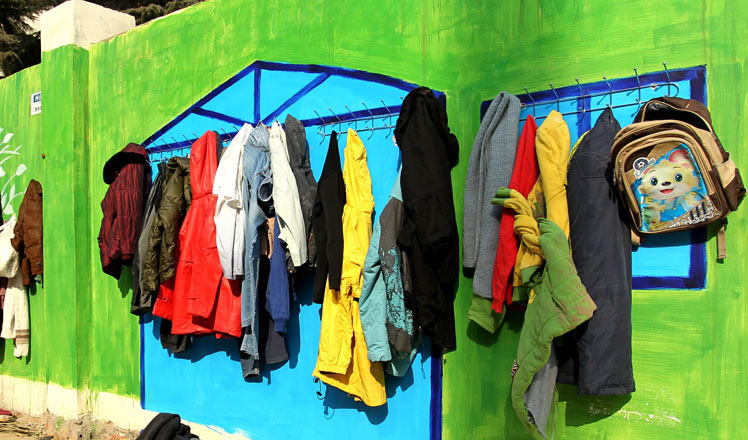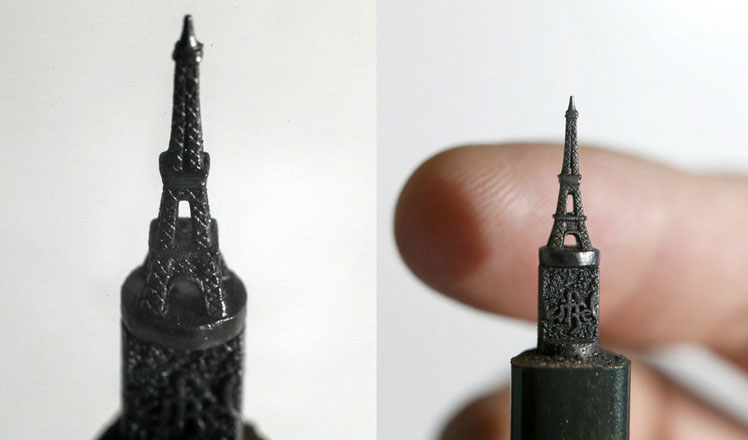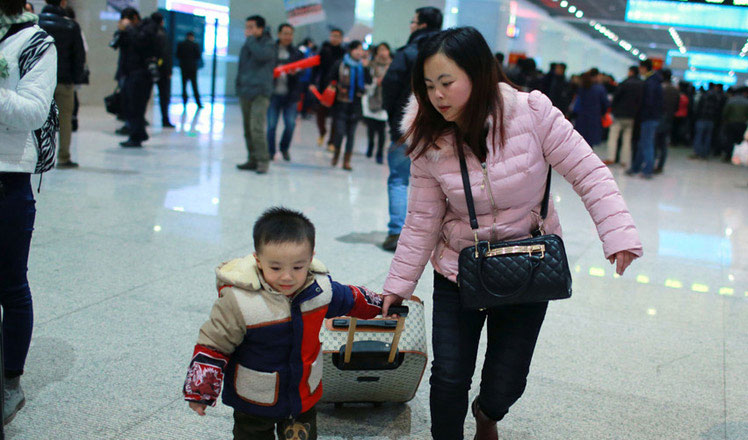Children at risk from parental prescriptions
Updated: 2016-02-05 07:52
By Yang Wanli(China Daily)
|
||||||||
The lack of 'child-specific' medication has led many parents to give their children reduced doses of drugs intended for adults. While the practice often works, medical experts are concerned that imprecise doses and inappropriate treatments could endanger young people's safety. Yang Wanli reports.
Yan Mei is the mother of a 16-year-old boy and a 9-year-old girl. Her children have visited the hospital less than eight times in their lives - not because they have been in excellent health, but because Yan has been acting as the "family doctor" herself.
However, the 42-year-old from Sichuan province is not a pediatrician. In fact, she has no medical training at all, but she has often decision to "self-treat" her children's minor ailments, such as colds, slight fevers and gastrointestinal discomfort.
When her son was age 4, he developed a bad cold and a persistent cough. "I crushed an antibiotic pill intended for adults and gave him half. The next day, his condition had improved greatly," Yan said, adding that her mother treated her the same way during her own childhood, and she has often used the method to treat her children.
She complained that the local children's hospital is always full. "Maybe we will end up with the same prescription after waiting for a whole day. A cough is not a big deal and my treatment works well," she said.
If the children have diarrhea, she treats them with berberine, a type of ammonium salt that is often used in China as a broad-spectrum anti-microbial medicine.
Yan has been lucky - the treatments she has given her children have never caused them discomfort, but the same cannot be said for many other parents, who may wish they had not given children medicine without seeking guidance from pediatricians.
In 2014, there were 20,000 deaths resulting from the improper use of medicines, and one in every three who died was younger than 18, according to statistics from the National Health and Family Planning Commission.
Last year, the Capital Institute of Pediatrics in Beijing, one of China's most renowned children's hospitals, treated more than 2 million children, with more than 6,000 requiring the emergency room. About 150 the emergency room "self-medication" in the family home.
On Jan 1, China relaxed the national family planning policy that restricted most couples to one child. While that should result in a baby boom in the years to come, medical experts have expressed concerns that the administration of untested, potentially unsafe, medication at home could pose a health risk to children.
According to a report released last year by Family-doctor, a popular medical-information website, 45 percent of Chinese parents admitted giving their children a a "reduced dose" of adult drugs without consulting a pediatrician.
In 2013, the Guangdong province branch of the China Food and Drug Administration conducted a survey of 2,000 parents across China. The results indicated that between 12 and 32 percent of children - depending on region and city - had been given adult medicines by their parents.
The treatments were administered in a number of ways: some parents admitted giving their children small doses of drugs intended for adults, but without researching the correct dose, while others said they simply increased or reduced the number of pills they gave their children based on how they responded, but again failed to consult medical professionals.
"Unsafe medication can be life-threatening in some cases," said Wang Fei, deputy director of the Intensive Care Unit at the Capital Institute of Pediatrics.
Wang said that about 20 to 30 percent of parents used antibiotics to treat their children's seasonal flu, equivalent to 50 to 60 percent of the number of people who attend the institute's outpatient department every day.
In lower-level hospitals, the number of cases of antibiotic abuse is likely to be far higher, she said, adding that about 90 percent of upper respiratory tract infections are caused by viruses, and antibiotics are not an appropriate treatment.
Moreover, if children are given antibiotics by their parents before arriving at the hospital, it will affect the results of blood tests, and "will also trigger an imbalance in the bacteria groups within the body. Moreover, the body builds up a tolerance if antibiotics are abused," she said.
The improper use of medications also imposes a huge burden on children's metabolisms because their livers and kidneys are not fully developed. Even worse, sometimes children are poisoned as a result of the use, or excessive use, of inappropriate drugs, she said.
According to Chang Yanqun, a pediatrician at the Guangdong Maternal and Child Health Hospital in Guangzhou, capital of Guangdong province, the rate of adverse reactions among children is generally double that of adults, because children are more sensitive to the effects of medicinal drugs.
For example, even low doses of antihistamines and alcohol - common ingredients in cold medications - can adversely affect younger patients, causing excitability or, conversely excessive, drowsiness.
Chang said a combination of low incomes and a decades-long shortage of pediatricians has resulted in a growing number of parents prepared to administer drugs to their children.
"Many parents don't understand the risks of unsafe medication. They usually treat their children by cutting the volume of drugs in each dose by a half or a quarter. This habit is still prevalent in many families," he said.
However, even with the right ingredients, the correct doses for adults and children differ widely. The instructions in most packs explain the appropriate doses, but some parents don't bother to read them.
"Some parents just spilt the capsule open and divide the ingredients into two or three portions, or they crush a pill into powder and give the child a small amount," said Su Ming, from the China office of Pfizer, the United States' pharmaceutical tical giant.
Su said "designed doses" help the body absorb the ingredients and also allow the active ingredients to be delivered to the intended spot with lower levels of wastage and little harm to internal organs. For example, capsules dissolve slowly to delay the release of their ingredients, and many pills are covered by a thin coating that has the same result.
"If these designed drugs are damaged, the drugs will be released in the wrong place - for example, in the stomach rather than the intestines. Some ingredients may damage the stomach, and others will be less effective than intended," he said.
Supply shortfall
In China, the number of drugs specifically designed to treat children is limited. According to the website of the China Food and Drug Administration, more than 170,000 drugs have been registered so far, only about 3,000 are intended for children.
Zhang Yiran, marketing manager at Pfizer's China office, said pharmaceutical products intended solely for children must undergo extensive trials within the targeted age range. "However, clinical tests on children always involve perceived concerns over ethical issues and the fear of harming them, especially babies," she said.
According to a 2010 report by the US Food and Drug Administration, only 20 to 30 percent of FDA-approved drugs are considered suitable for pediatric use. That means the effects of most of the products used to treat adults have not been studied in children - even though physicians may use them to treat children.
"The biggest challenge is not related to new drugs, but the lack of instructions related to safe doses for children," Zhang said, adding that many common children's illnesses can usually be treated with drugs marketed for adults, but the lack of dosage information limits the choice of appropriate medication.
As an example, Zhang described one of Pfizer's children's drugs that is widely used to treat respiratory infections. The treatment contains the same active ingredients as the medication for adults, but the adult treatment comes in the form of a pill, while the children's version is a powder, which is easy to measure and can be mixed with food and drinks.
"The ingredients are made into thousands of tiny balls, each coated for slow release. More important, it tastes sweet," Zhang said. "If more information about appropriate doses for children were made available, I think fewer parents would treat child illnesses with drugs intended for adults."
Lack of interest
Although demand for children's drugs is high, many pharmaceutical companies are unwilling to provide them. "Apart from the high level of investment required, concerns over ethical issues and the time-consuming research process, children's medicines usually contain a lower dose of active ingredients than those intended for adults, which means lower profits," said Wang from the Capital Institute of Pediatrics, which runs its own drugs company.
Wang suggested the National Health and Family Planning Commission and the FDA should draft preferential policies, such as providing financial support or reducing taxes, to encourage companies to develop drugs for children or manufacture children's versions of adult medications.
She also urged the acceleration of import approval for a range of new drugs for children and treatments for rare children that have been clinically tested and approved overseas. In some situations, especially in Intensive Care Units some of these medications could be crucial to whether a child's life can be saved, according to Wang.
"Hospitals are unable to purchase drugs that have been used in Western countries for years but are still waiting import approval," she said. "Parents have often obtained the drugs from overseas via agencies, but the number of agencies is falling because the owners are anxious to avoid possible medical disputes.
"It's also hard for doctors to decide whether to recommend unapproved drugs to parents. Everyone will be satisfied if the patient is cured, but if a dispute happens, the recommendation (even if it is proved to correct) will be a problem," she said.
Contact the writer at yangwanli@chinadaily.com.cn
(China Daily 02/05/2016 page6)
- UN special envoy announces temporary pause of intra-Syrian talks
- Taliban kill 10-year-old hailed as militia hero
- Obama slams anti-Muslim rhetoric during first visit to US mosque
- Australian police suspect overseas hackers behind threats to schools
- EU reform proposals show 'real progress': British PM
- Mainland Chile confirms first 3 cases of Zika virus

 Kindness walls bringing extra warmth to the needy
Kindness walls bringing extra warmth to the needy
 A robot that grabs red envelopes
A robot that grabs red envelopes
 Culture Insider: 9 things you may not know about Start of Spring
Culture Insider: 9 things you may not know about Start of Spring
 Talented artist makes tiny pencil lead sculptures
Talented artist makes tiny pencil lead sculptures
 Ten most heartwarming stories about Spring Festival Rush
Ten most heartwarming stories about Spring Festival Rush
 China's 'Moon Walker' sends back stunning HD photos
China's 'Moon Walker' sends back stunning HD photos
 Starbucks, office rents and CEOs form alternative outlook on China
Starbucks, office rents and CEOs form alternative outlook on China
 China's most beautiful wetlands
China's most beautiful wetlands
Most Viewed
Editor's Picks

|

|

|

|

|

|
Today's Top News
National Art Museum showing 400 puppets in new exhibition
Finest Chinese porcelains expected to fetch over $28 million
Monkey portraits by Chinese ink painting masters
Beijing's movie fans in for new experience
Obama to deliver final State of the Union speech
Shooting rampage at US social services agency leaves 14 dead
Chinese bargain hunters are changing the retail game
Chinese president arrives in Turkey for G20 summit
US Weekly

|

|








